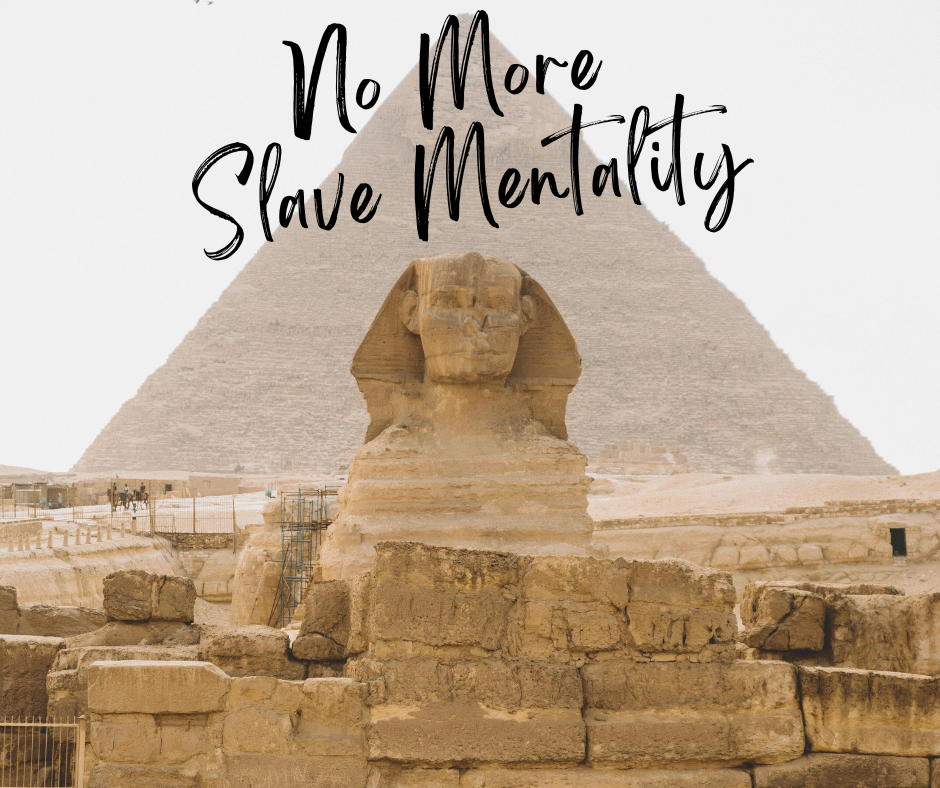The Unknown God
Listen to the Devotional Below

Embracing the Good News: Lessons from Athens
In the bustling marketplace of ancient Athens, a revolutionary message was taking root. Amidst philosophers and intellectuals, a new teaching about Jesus and the resurrection was causing quite a stir. This scene from Acts 17 offers us important lessons for how we approach faith, evangelism, and our relationship with God.
The Power of Being Bothered
Our journey begins with a stark observation: Paul was "greatly distressed to see that the city was full of idols." This reaction stands in sharp contrast to how many of us navigate our modern world. We often walk through life unbothered by the idols of our time - not golden statues, perhaps, but the worship of money, status, pleasure, and power that permeates our society.
When was the last time you felt genuinely disturbed by the misplaced priorities of our culture? This distress isn't meant to paralyze us, but to motivate us to action. It's a call to be more aware, more engaged, and more passionate about sharing an alternative way of life.
The Art of Engaging Culture
The approach taken in Athens provides a masterclass in cultural engagement. Paul didn’t back down from confrontation with the Stoics and Epicureans philosophers of his day. And yet, instead of leading with condemnation, he began his message began with observation and connection. "Men of Athens, I see that in every way you are very religious," he said. Notice that he begins respectfully before commencing to find common ground to lay a foundation for the introduction of new ideas.
This method of engagement is crucial. It reminds us to meet people where they are, to understand their worldview before attempting to reshape it. Paul even quoted Greek poets and philosophers to bridge the gap between their understanding and the truth of the Gospel.
In our efforts to share our faith, we often neglect taking the time to understand the beliefs and values of those we're speaking to. We must be willing to find points of connection in unexpected places instead of just steamrolling ahead with our proclamations of judgement and disaster.
The Heart of the Message
At the core of this encounter was a profound truth: "The God who made the world and everything in it is the Lord of heaven and earth and does not live in temples built by human hands." This declaration challenged the prevailing notions of divinity in Athens, presenting a God who was both transcendent and immanent. Paul seems to direct his message more keenly to the Stoics while possibly alienating the Epicureans through a tactic known as “divide and conquer”.
The message continued with a beautiful insight into God's purpose for humanity: "God did this so that men would seek him and perhaps reach out for him and find him, though he is not far from each one of us." This paints a picture of a God who is eagerly waiting for us to reach out, who has designed the universe with the hope that we would seek Him.
Imagine the kingdom of God as being just on the other side of a thin barrier, like saran wrap. It's right there, waiting for us to press through. This imagery invites us to consider: what's holding us back from pressing in and experiencing God's presence more fully?
Challenging Intellect and Inviting Faith
The climax of the message in Athens was the declaration of Jesus' resurrection. This wasn't an easy sell to a group of intellectuals, yet it wasn't watered down or avoided. It serves as a reminder that the core truths of our faith - as miraculous and challenging as they may be - should never be compromised or hidden.
The response to this message was varied: some sneered, some wanted to hear more, and some believed. This spectrum of reactions is a reality we must be prepared for when sharing our faith. Not everyone will immediately embrace the message, but that shouldn't deter us from speaking truth with love and conviction.
As we reflect on this ancient encounter, several key applications emerge for our lives today:
1. Be aware and be bothered: Allow yourself to be disturbed by the misplaced priorities and idols of our culture. Let this motivate you to live differently and share hope.
2. Engage with understanding: Take time to know the beliefs and values of those around you. Find points of connection as bridges for meaningful conversation.
3. Present the good news: Focus on the positive message of God's love and the hope found in Jesus, rather than leading with condemnation.
4. Don't shy away from truth: While we should be wise in our approach, never compromise on the core truths of the faith, including the resurrection.
5. Be prepared for various responses: Not everyone will immediately embrace the message. Some will reject, some will want to know more, and some will believe. Our job is to faithfully share, leaving the results to God.
6. Press in to God's presence: Remember that God is not far from any of us. He's waiting for us to reach out and experience Him more fully.
7. Take action on your faith: Don't be content with just hearing and discussing ideas. Let your beliefs transform your actions and priorities.
We live in a culture in love with ourselves and in love with ideas. Our society now is perhaps even more intellectually and spiritually diverse as ancient Athens. Despite this, these principles can guide us in living out and sharing our faith with wisdom, courage, and love. The message that captivated some and challenged others in that long-ago marketplace is still powerful today - a God who is near, who invites us to know Him, and who has demonstrated His love through His Son Jesus.
As we go about our daily lives, may we be both bothered by the idols of our age and boldly compassionate in sharing the hope we've found. The kingdom of God is near - it's time to press in, reach out, and live the good news in a world that desperately needs it.
-----
Here's a 5-day Bible reading plan and devotional guide for your week based on the message:
Day 1: Recognizing Our Idols
Reading: Acts 17:16-21
Devotional: Paul was distressed when he saw Athens full of idols. Today, our idols may not be physical statues, but they're just as real - money, status, pleasure, or even our own intellect. Take time to reflect on what occupies your heart and mind. What do you pursue with the most passion? Ask God to reveal any idols in your life and give you the strength to put Him first. Remember, our God is a jealous God who desires our whole heart. Consider how you can reorient your life to worship Him alone.
Day 2: Proclaiming the Good News
Reading: Acts 17:22-31
Devotional: Paul's approach to sharing the gospel with the Athenians was both respectful and bold. He found common ground, quoting their own poets, yet didn't shy away from proclaiming the truth about Jesus and the resurrection. In our interactions with non-believers, how can we follow Paul's example? Reflect on ways you can connect with others' worldviews while still staying true to the gospel message. Pray for wisdom and courage to share your faith in a way that is both relatable and uncompromising.
Day 3: Reaching Out to God
Reading: Psalm 145:18-21
Devotional: "God did this so that men would seek him and perhaps reach out for him and find him, though he is not far from each one of us" (Acts 17:27). This beautiful truth reminds us that God desires a relationship with us and has made Himself accessible. Yet, He still requires us to seek Him. Today, make a conscious effort to reach out to God. Set aside distractions and spend time in prayer, listening for His voice. Remember, He is near, waiting for you to draw close to Him.
Day 4: Embracing the Resurrection
Reading: 1 Corinthians 15:12-22
Devotional: The resurrection of Jesus is the cornerstone of our faith. When Paul preached in Athens, some sneered at this idea, while others wanted to hear more. How do you respond to the miraculous claims of Christianity? Do you fully embrace the power of the resurrection in your daily life? Meditate on what Christ's victory over death means for you personally. Let this truth transform your perspective on life's challenges and fuel your hope for eternity.
Day 5: Taking Action in Faith
Reading: James 1:22-25
Devotional: The Athenians were known for endlessly discussing new ideas without taking action. As believers, we're called to be doers of the Word, not just hearers. Reflect on areas of your spiritual life where you might be procrastinating or avoiding God's call. Is there a ministry He's nudging you towards? A relationship that needs mending? A habit that needs changing? Ask the Holy Spirit for the courage and strength to move from knowledge to action, trusting that God will equip you for whatever He calls you to do.

Making Room for Jesus
We all know the Christmas story, don't we? Mary, heavily pregnant, riding a donkey through the night. Joseph frantically knocking on door after door in Bethlehem, hearing "No vacancy!" at every inn. Finally, in desperation, they settle for a stable where Jesus is born among the animals. That same night, shepherds rush in after seeing angels, and wise men arrive with their gifts of gold, frankincense, and myrrh. It's a beautiful, touching scene we've carried in our hearts since childhood.But what if much of what we "know" isn't quite what the Bible actually says?
Read More
No More Slave Mentality
Life has a way of getting harder right when we think we're finally stepping out in faith. We convince ourselves that obedience to God should make things easier, smoother, more comfortable. But what happens when the opposite occurs? What happens when we take that leap of faith and suddenly the ground beneath us feels even more unstable?
Read More
Gratitude Is A Virtue Not A Feeling
When we think about gratitude, most of us wait for a warm fuzzy feeling to hit us. We expect goosebumps, a stirring in our hearts, or at least a momentary rush of appreciation. But what happens when that feeling doesn't come? What happens when life feels more like a pile of torn-up concrete and rebar than a smooth, well-paved road?
Read MoreStay Connected with Revive
Sign up for our newsletter to stay informed about upcoming events, sermons, and community updates. Don’t miss out on what’s happening at Revive Church—delivered right to your inbox.


